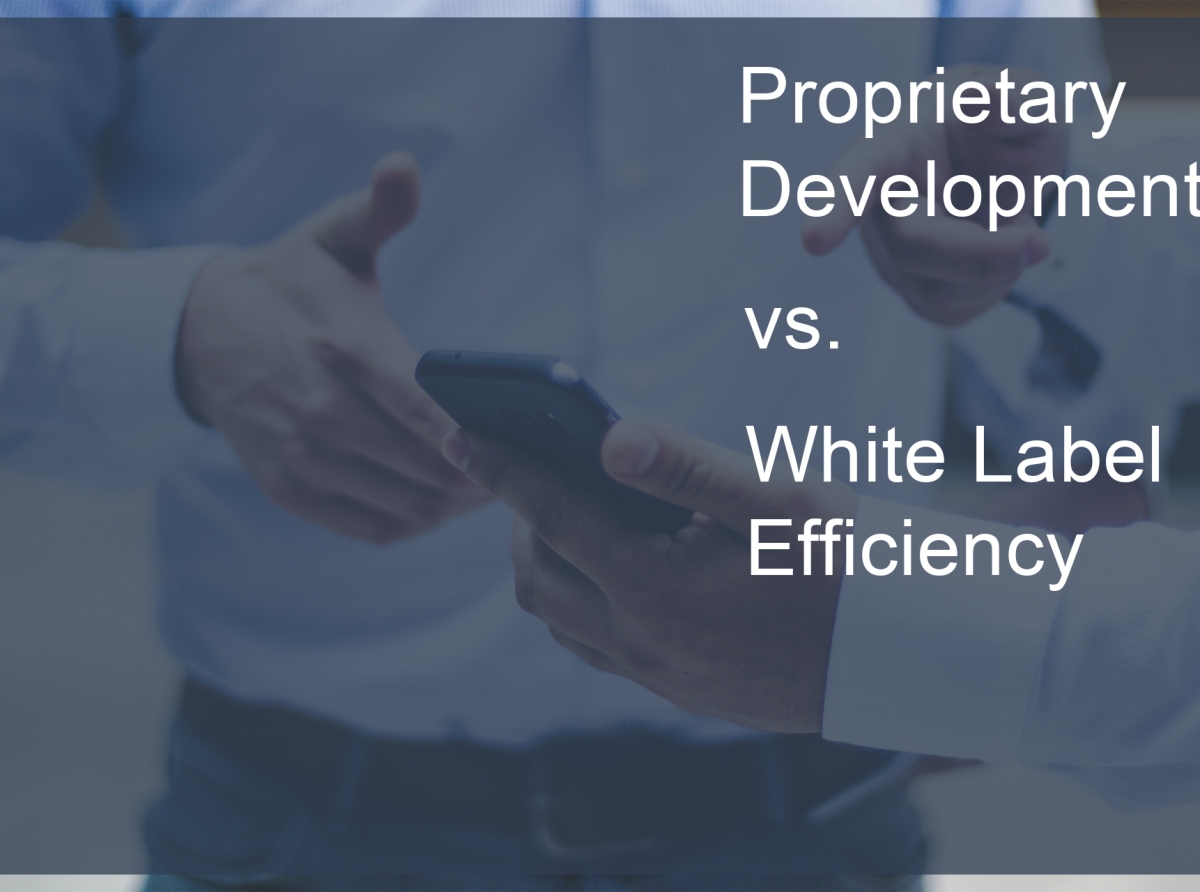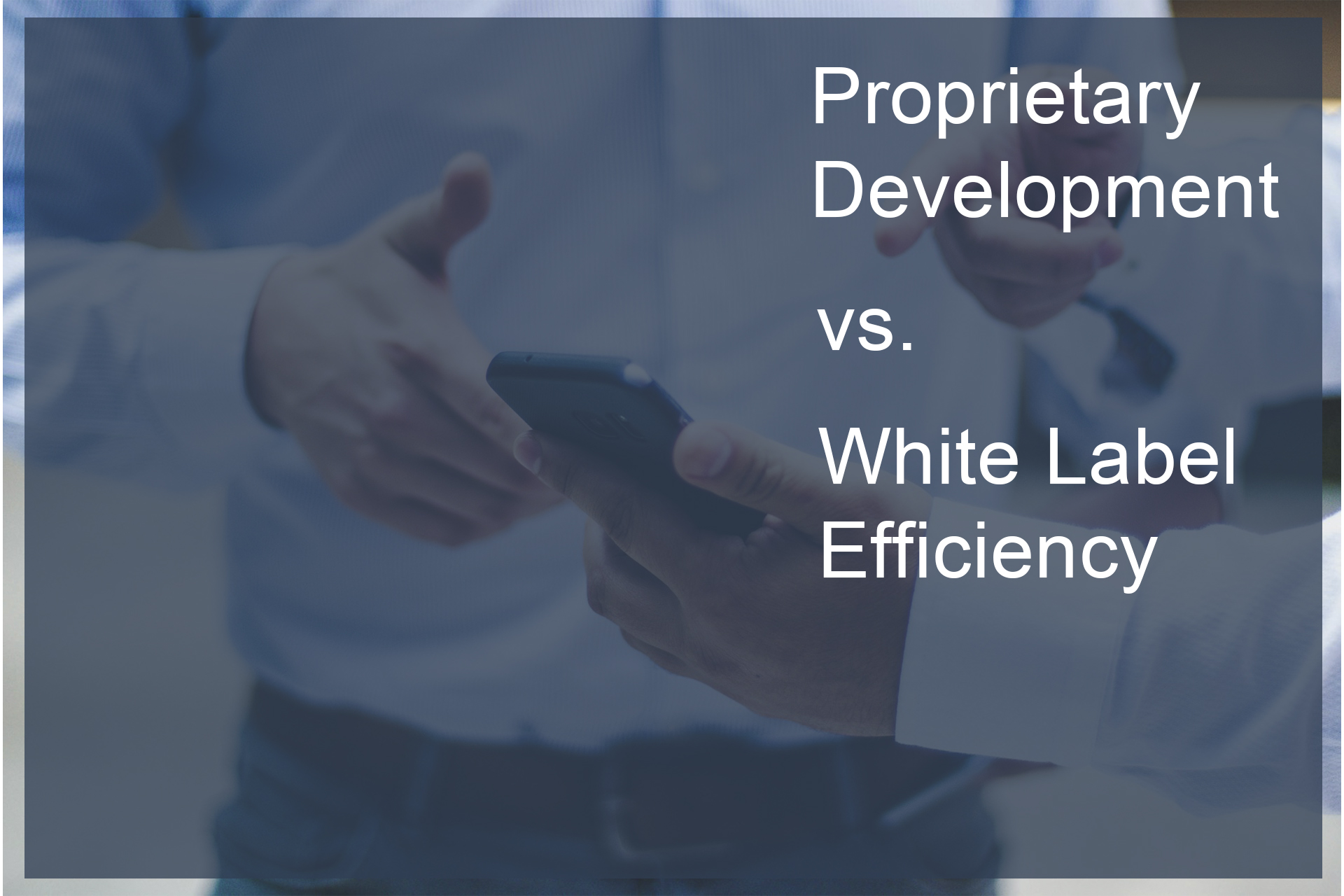Forex: Proprietary Development vs. White Label Efficiency

Forex: Proprietary Development vs. White Label Efficiency
The Forex market, known for its high liquidity and 24-hour trading opportunities, has become an increasingly popular investment arena for both institutional and retail traders. As the market continues to expand, businesses entering this space face the critical decision of choosing between proprietary development and white label solutions to build their trading platforms. Understanding these two approaches is essential for making an informed choice that aligns with a company’s strategic goals.
Proprietary development involves creating a unique trading platform from scratch, tailored specifically to the company’s needs and vision.
In contrast, white label solutions offer pre-built platforms that can be rebranded and customized with minimal effort. Each approach has its own set of advantages and challenges, making it crucial for Forex businesses to carefully evaluate which path will best support their long-term objectives.
Proprietary development involves creating a unique trading platform from scratch, tailored specifically to the company’s needs and vision.
In contrast, white label solutions offer pre-built platforms that can be rebranded and customized with minimal effort. Each approach has its own set of advantages and challenges, making it crucial for Forex businesses to carefully evaluate which path will best support their long-term objectives.

Forex: Proprietary Development vs. White Label Efficiency
Advantages of Proprietary Development
Customization and FlexibilityOne of the most significant benefits of proprietary development is the high degree of customization it offers. Companies can design every aspect of their platform to meet specific requirements, ensuring that it aligns perfectly with their business model and customer preferences. This level of flexibility allows for the creation of unique user experiences that can set a platform apart from competitors.
Potential for Unique Features and Innovations
Proprietary development opens up possibilities for innovation that might not be feasible with off-the-shelf solutions. Companies can integrate cutting-edge technologies such as artificial intelligence, machine learning algorithms, or advanced analytics tools to enhance trading capabilities. These unique features can provide a competitive edge by offering traders functionalities they cannot find elsewhere.
Control over Technology and Data Security
Owning a proprietary platform grants full control over its technology stack and data security measures. Companies can implement stringent security protocols to protect sensitive information, ensuring compliance with regulatory requirements. This control also allows for rapid response to emerging threats or vulnerabilities, maintaining the integrity and trustworthiness of the platform.
Challenges of Proprietary Development
High Initial Costs and Time InvestmentDeveloping a proprietary trading platform requires substantial financial investment and time commitment. The costs associated with hiring skilled developers, purchasing necessary technologies, and conducting thorough testing can be prohibitive for many businesses. Moreover, the development timeline can extend over months or even years before the platform is ready for launch.
Need for Specialized Knowledge and Ongoing Maintenance
Building a proprietary system demands specialized technical expertise in areas such as software development, cybersecurity, and financial markets. Once the platform is operational, continuous maintenance is essential to address bugs, implement updates, and ensure smooth performance. This ongoing requirement can strain resources if not managed effectively.
Risk Management in Software Development
Software development inherently involves risks related to project delays, cost overruns, or technical failures. Managing these risks requires meticulous planning and effective project management strategies to keep development on track and within budget.
Benefits of White Label Solutions
Reduced Time to MarketWhite label solutions significantly shorten the time required to launch a trading platform. Since these solutions come pre-built with tested functionalities, companies can quickly customize them with their branding elements and go live within weeks rather than months or years.
Lower Costs Compared to Proprietary Development
The cost savings associated with white label solutions are considerable. Businesses avoid substantial upfront investments in technology infrastructure and development resources by leveraging existing platforms that have already undergone rigorous testing.
Access to Established, Reliable Technologies
White label providers typically offer robust platforms built on proven technologies used by numerous other clients in the industry. This reliability ensures stable performance under varying market conditions while reducing concerns about technical glitches or downtime affecting trader experiences.
Conclusion
Both proprietary development and white label solutions offer distinct advantages depending on organizational needs within the Forex market landscape:
Proprietary Development: Provides unparalleled customization potential but comes at high initial costs along with ongoing maintenance demands.
White Label Solutions: Offer quick market entry at lower costs using established technologies but may lack unique differentiators present in custom-built systems.
When deciding between these approaches:
Assess your budget constraints,
Consider your target audience’s expectations,
Evaluate internal capabilities regarding technological expertise,
Determine how quickly you need your product launched into this competitive arena,
Ultimately achieving efficiency hinges upon aligning chosen approach wisely against broader business strategy ensuring sustainable success amidst dynamic Forex industry trends!
Forex, Proprietary Development, White Label Solutions, Currency Trading, Efficiency
Both proprietary development and white label solutions offer distinct advantages depending on organizational needs within the Forex market landscape:
Proprietary Development: Provides unparalleled customization potential but comes at high initial costs along with ongoing maintenance demands.
White Label Solutions: Offer quick market entry at lower costs using established technologies but may lack unique differentiators present in custom-built systems.
When deciding between these approaches:
Assess your budget constraints,
Consider your target audience’s expectations,
Evaluate internal capabilities regarding technological expertise,
Determine how quickly you need your product launched into this competitive arena,
Ultimately achieving efficiency hinges upon aligning chosen approach wisely against broader business strategy ensuring sustainable success amidst dynamic Forex industry trends!
Forex, Proprietary Development, White Label Solutions, Currency Trading, Efficiency









Report
My comments